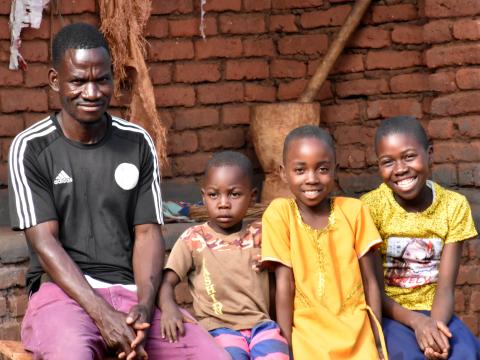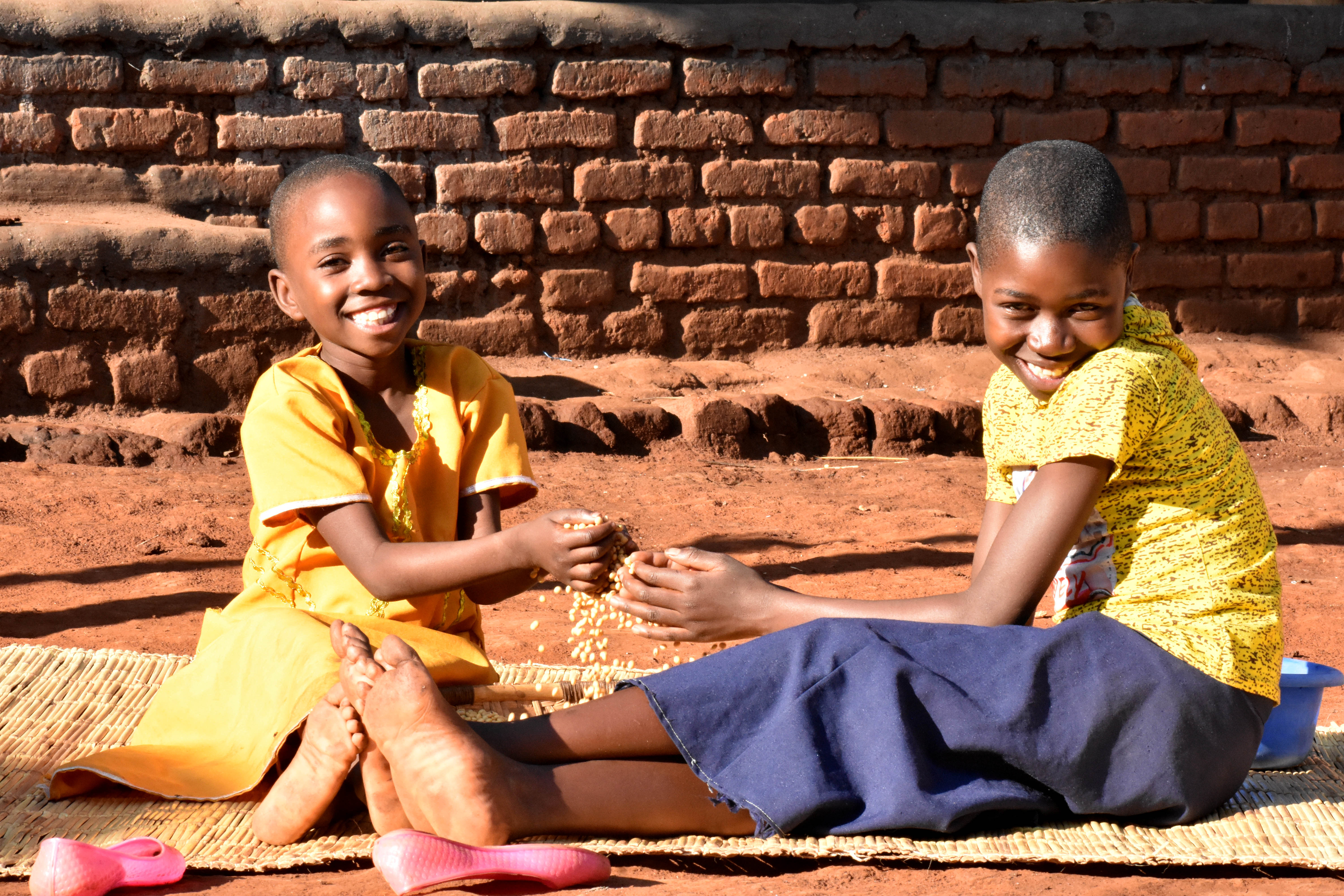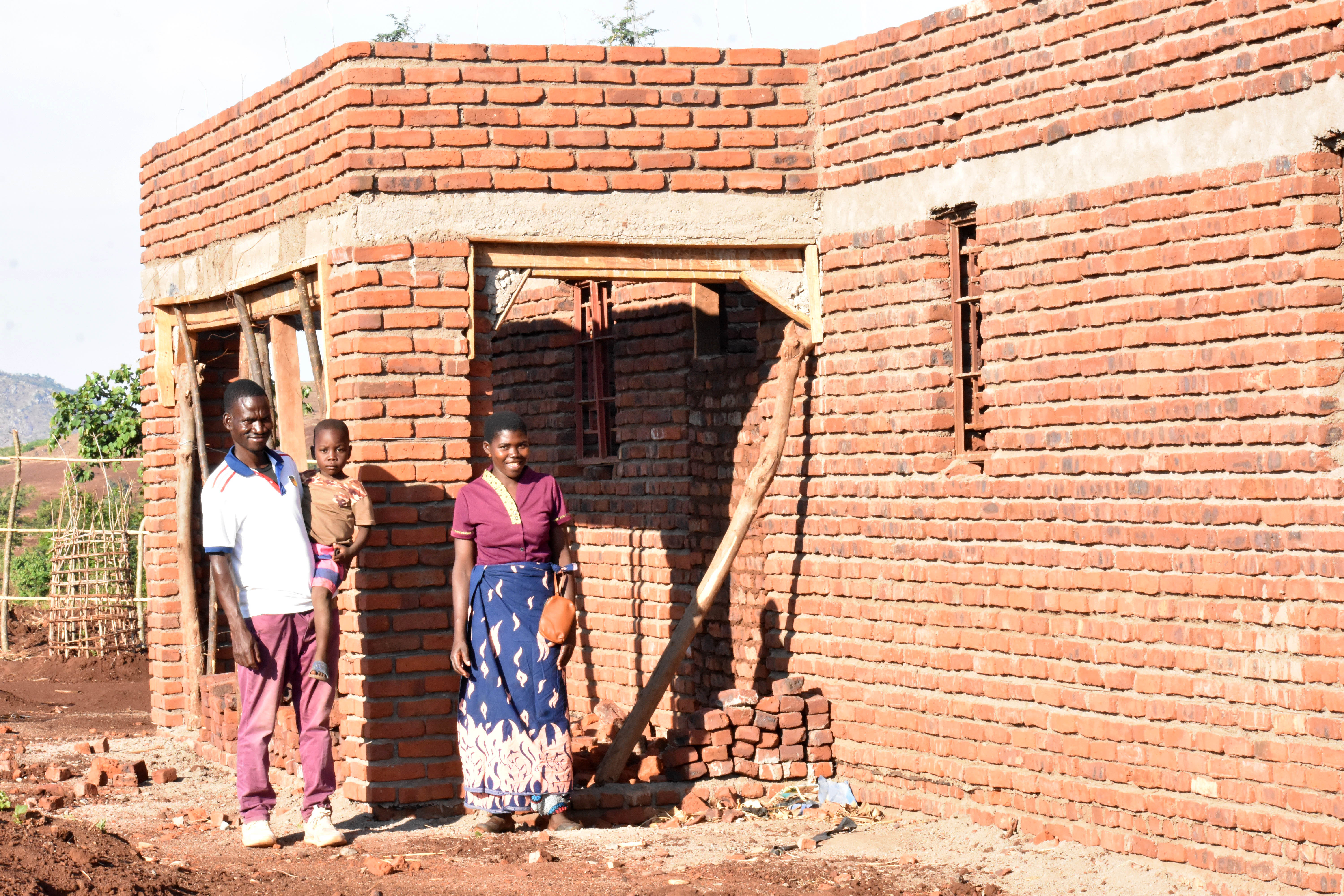How THRIVE Project Helped Honest Chofuna Quit Tobacco Farming and Build a Thriving Future for His Family

Growing up in a rural farming Chewa community in Nkhoma, Traditional Authority Chitekwere in Lilongwe, Malawi, Honest Chofuna had dreams of becoming an accountant.
However, when financial difficulties struck his family, his father struggled to support his 11 children. As the seventh-born child, Honest was forced to quit school in Form 2 and help his father take care of the family.
At the time, tobacco farming was the most profitable farming activity in Nkhoma and other parts of Malawi. Honest, as a teenager, joined a group of men and women who saw a future in tobacco farming.
Honest continued to farm tobacco until 2019, when he suffered a major loss.
From a production cost of over Mk 450,000($450), Honest got Mk250, 000 ($250), losing about Mk 200,000($200) in the process.
“In 2019 I made a loss of over Mk 200,000($200) from my tobacco sales, I was so broken that I made a decision to quit tobacco farming altogether,” says Honest.
“When I quit tobacco farming, I had no immediate alternative means of earning money, so I struggled to normalize my income-earning avenues,” he explains.
When the 34 year old father of four heard about Transforming Household Resilience in Vulnerable Environment (THRIVE) project, he was eager to learn what new thing World Vision had brought to his community.
Having attended an Empowered World View (EWV) training, Honest realized mindset change was key to wealth creation.
He also learnt about taking care of trees through Farmer Managed Natural Regeneration (FMNR) both on -farm and off-farm.
“From the THRIVE training, I realized there was an opportunity to make money. I came to know there were so many ways to make money through farming and not only tobacco. I regretted cutting down a lot of trees just to grow a crop that has done a lot of harm to our nature,” he says.
Today Honest has managed to lurk in more money than his tobacco farming could bring him.
Under the teachings of Commercial village (CV) initiative, a component under the THRIVE project where farmers have access to markets for their produce, Honest makes millions a year through the sale of soya beans.

“Right now I make more money than tobacco could bring me previously. Just in 2020 soon after joining THRIVE, I made over Mk 3 million ($3000) from soya sales, an amount I never could make with tobacco,” he brags.
Though savings For Transformation (S4T), a village savings initiative under the same project, Honest’s 30 year old wife, Seketina has stakes of over MK 200,000($200) she will be getting as dividends by end of the year.
Seketina’s income supplements her husband’s. Together with such a financial muscle, they have bought a motor bike worthy over Mk 1.8 million to cater for family’s mobility challenges ($1800).
Also currently the family has a seven-bedroom modern house that will take over Mk 11 million ($11,000) to be completed. So far, the project has costed over Mk 7 million.
“I am glad my husband and I are constructing a new and modern house for our children. It is a major project, but once completed our children will have proper structures to call home,” explains Seketina

Seketina and Honest also have both on-farm and off-farm managed trees from which they collect firewood for domestic usage. Today, the family has 13 year grade eight Thabo, Flocy, 11, and in grade four Tamala, eight and in grade three as well as four year old Mike looking up to them as pillars of hope.
Currently, the family can afford paying Mk 500,000 ($500) for their children’s annual tuition fees in most public universities in Malawi.